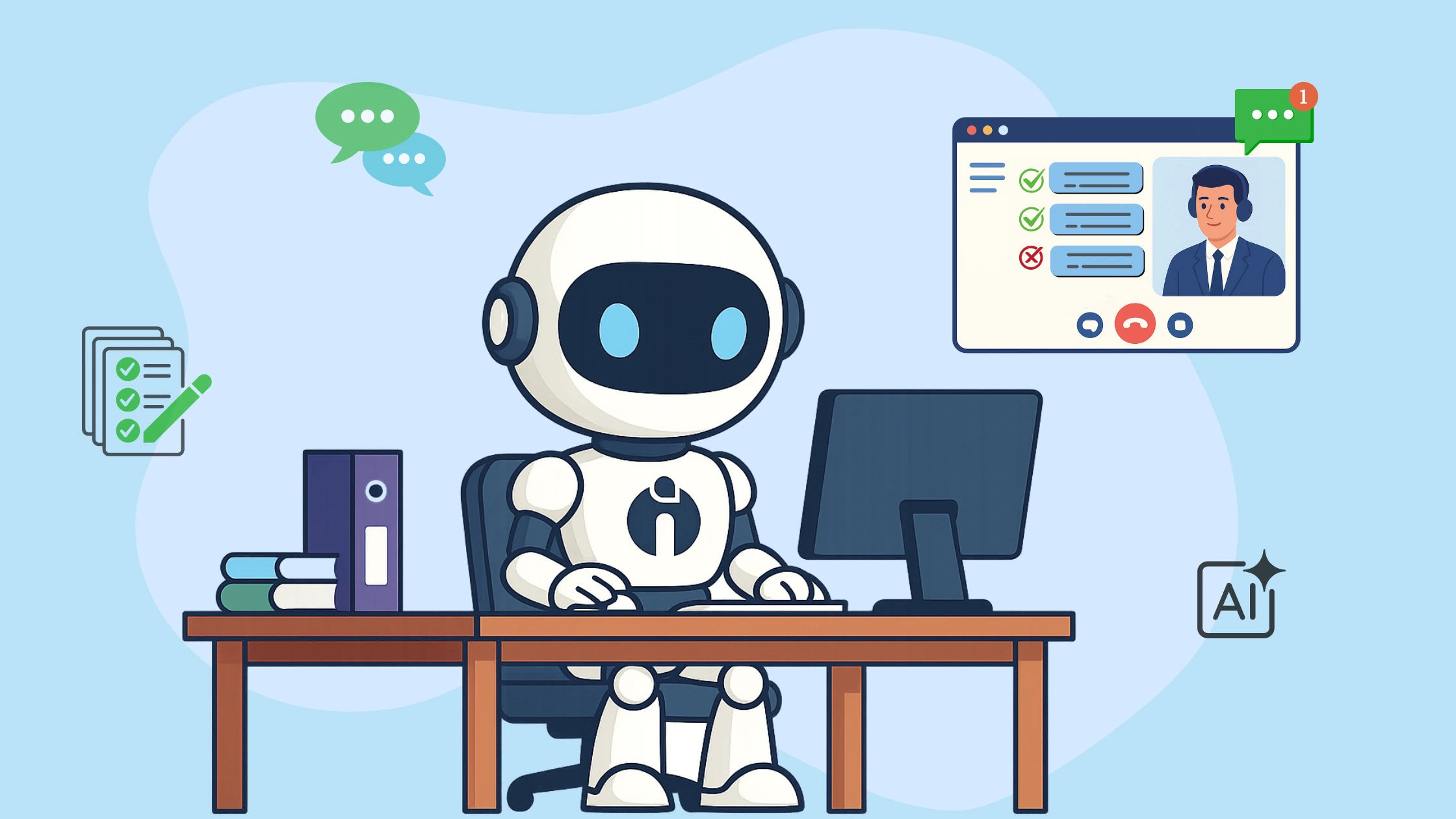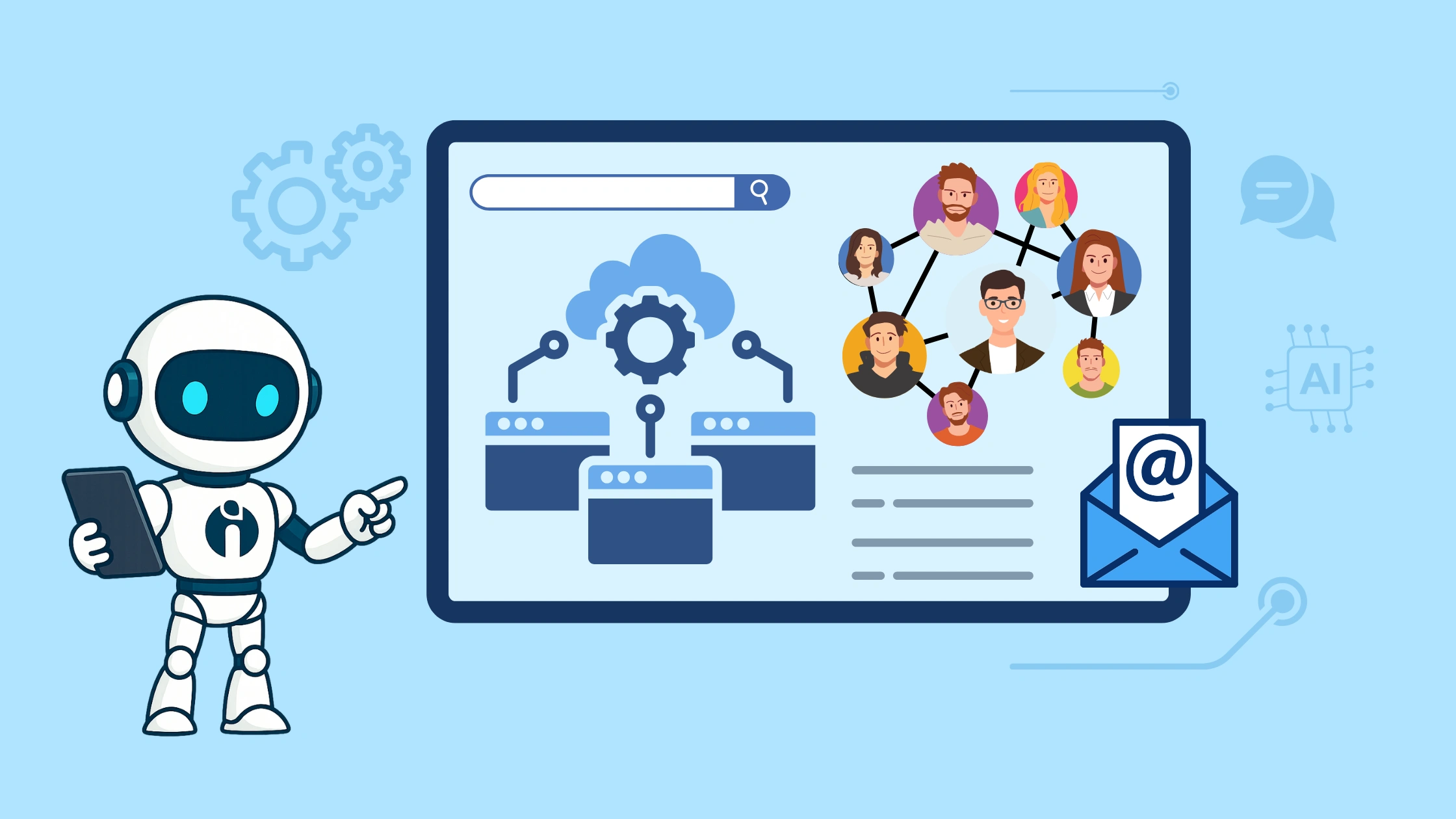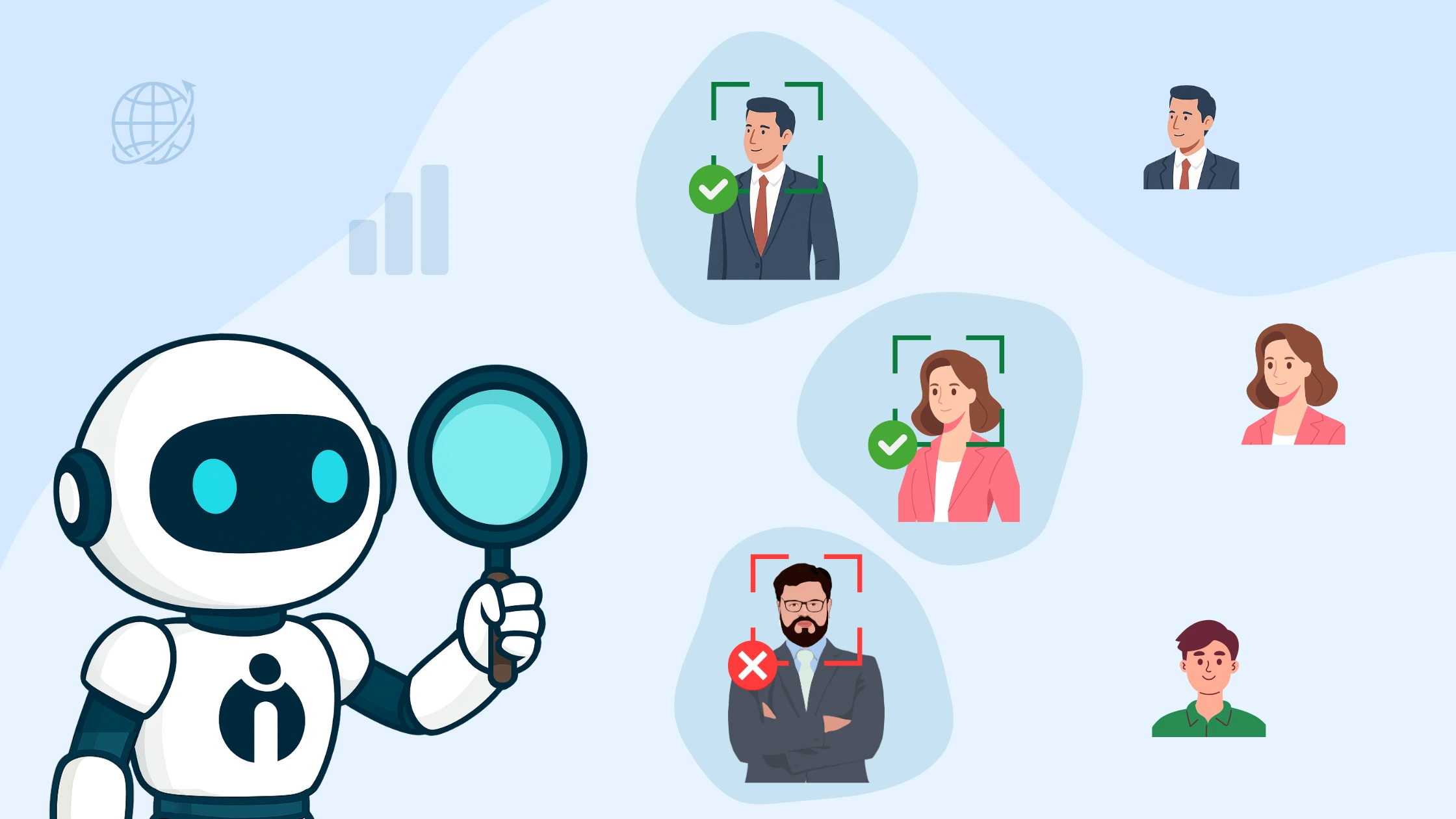TL;DR
- Data-driven recruiting enhances hiring decisions by relying on analytics rather than intuition.
- It improves quality of hire, reduces time-to-hire, and optimises recruitment costs.
- Personalised candidate experiences and strategic workforce planning are key benefits.
- Success depends on using the right tools such as ATS, CRM, and recruitment analytics platforms.
In today's competitive talent market, recruiters are under immense pressure to identify, attract, and retain top talent efficiently. Traditional hiring methods often rely on intuition and experience, which, while valuable, can sometimes lead to inefficiencies, missed opportunities, or costly hiring mistakes.
This is where data-driven recruiting strategies have revolutionised talent acquisition, allowing organisations to make informed decisions based on precise insights rather than guesswork. In this comprehensive guide, we will explore the top five benefits of data-driven recruiting strategies, how they can transform your recruitment process, and practical steps to implement them effectively.
We will also examine tools, best practices, and the future of recruitment analytics. Recruiters and HR professionals will see that adopting data-driven practices is no longer optional but essential for success in modern hiring.
What is Data-Driven Recruiting?
Data-driven recruiting refers to using analytics, metrics, and objective data to inform every aspect of the recruitment process. Unlike traditional recruitment methods that often rely on gut feelings or anecdotal evidence, data-driven recruiting leverages real-time data to enhance decision-making. Recruiters gather and analyse data using recruitment analytics platforms, applicant tracking systems (ATS), and candidate relationship management (CRM) tools.
This data may include metrics such as candidate source effectiveness, time-to-hire, candidate engagement, and quality of hire. By analysing these metrics, recruiters can identify patterns, predict outcomes, and optimise recruitment strategies to align with organisational goals. In essence, data-driven hiring transforms hiring from a reactive process into a proactive, strategic approach that improves efficiency, reduces costs, and enhances the overall candidate experience.
Understanding the foundation of data-driven recruiting is just the start. We must investigate why recruiters in particular require these tactics in their daily work if we are to realise their potential fully.
Why Recruiters Need Data-Driven Strategies?
Recruiters face several challenges in today's hiring landscape. The war for talent is fierce, and organisations cannot afford prolonged vacancies or poor hiring decisions. Some of the most common challenges include:
-
High turnover rates due to poor candidate-job fit
-
Extended time-to-hire, delaying business operations
-
High recruitment costs due to ineffective sourcing
-
Difficulty predicting hiring needs
Data-driven recruiting addresses these challenges by providing actionable insights that inform informed decisions. By understanding which recruitment channels deliver the best candidates, which roles require specific skill sets, and how to engage candidates effectively, recruiters can work with greater accuracy and efficiency.
In fact, 67% of HR leaders worldwide plan to invest in HR analytics in 2025 as a way to streamline processes and boost hiring effectiveness (Source). This growing reliance on analytics highlights just how essential data has become in modern recruitment. Moreover, predictive analytics allows HR teams to anticipate talent needs, plan strategically, and align recruitment efforts with business objectives, ensuring long-term organisational success. Now that we understand the challenges recruiters face and why data is essential, let's dive into the top five benefits that demonstrate how data-driven recruitment strategies can transform hiring.
Top 5 Benefits of Data-Driven Recruiting Strategies
Before diving into the benefits, it's essential to understand that data-driven hiring doesn't just improve one part of the hiring process-it transforms the entire recruitment strategy. By leveraging actionable insights, recruiters can make smarter, faster, and more strategic decisions that benefit both the organisation and the candidate experience.
1. Improved Quality of Hire
One of the most significant benefits of data-driven recruiting strategies is the improved quality of hire. Traditional recruitment often relies on subjective assessments, resulting in hiring mismatches or a poor cultural fit. Using data, recruiters can make informed decisions by evaluating candidates on quantifiable metrics such as:
-
Skills and qualifications
-
Past job performance
-
Cultural fit and engagement scores
-
Assessment test results
For instance, by analysing historical data, recruiters can identify patterns that correlate with high-performing employees. This allows them to focus on candidates most likely to succeed, reducing turnover and increasing productivity.
Key takeaway: Organisations that invest in data-driven hiring practices report higher employee retention and better long-term performance because every hiring decision is backed by evidence rather than intuition.
While improving the quality of hire is vital, speed and efficiency in the recruitment process can make the difference between securing top talent and losing it. Let's see how data-driven approaches accelerate hiring.
2. Faster and More Efficient Hiring Process
Time is one of the most critical factors in recruitment. Prolonged hiring processes can lead to the loss of top candidates and increased operational costs. Data-driven recruiting strategies accelerate the hiring process by:
-
Identifying the most effective recruitment channels
-
Automating candidate screening and shortlisting
-
Reducing manual administrative tasks
For example, an ATS integrated with analytics can automatically rank candidates based on predefined criteria, ensuring recruiters spend time only on the most suitable applicants. Additionally, data insights can highlight bottlenecks in the recruitment pipeline, allowing HR teams to optimise workflows and reduce time-to-hire.
Key takeaway: Faster hiring not only fills roles promptly but also enhances the employer's brand, as candidates appreciate a smooth and efficient recruitment process. Efficiency is key, but it is equally essential to ensure that candidates enjoy a positive journey throughout recruitment. Next, we will explore how data-driven strategies enhance candidate experience.
3. Enhanced Candidate Experience
A positive candidate experience is vital for attracting top talent. Data-driven recruiting allows recruiters to personalise communication and interactions based on candidate behaviour and preferences.
Analytics can help identify:
-
Which candidates respond best to specific communication channels
-
Optimal follow-up timing
-
Engagement patterns during the recruitment process
By tailoring interactions, recruiters can make candidates feel valued and understood, improving candidate satisfaction. Happy candidates are more likely to accept offers, refer other high-quality candidates, and engage positively with the organisation, even if they are not hired.
Key takeaway: A data-driven approach ensures candidates enjoy a seamless, personalised experience, strengthening the organisation's reputation and appeal. A superior candidate experience is valuable, but optimising costs and maximising ROI ensures that these strategies are sustainable. Let's take a closer look at cost reduction and ROI improvement.
4. Cost Reduction and ROI Improvement
Recruitment can be expensive, especially if the process is inefficient or hires are mismatched. Data-driven recruiting strategies help organisations reduce costs and improve return on investment (ROI) by:
-
Identifying underperforming recruitment channels
-
Reducing reliance on external agencies
-
Minimising turnover through better candidate-job fit
For example, if data shows that LinkedIn delivers higher-quality candidates than job boards, recruiters can allocate budget more effectively, maximising ROI. Additionally, automating repetitive tasks saves time and resources, allowing teams to focus on strategic activities such as employer branding and candidate engagement.
Key takeaway: Data-driven recruitment strategies is not just about better hires; it's about achieving financial efficiency and optimising recruitment spend across channels. Reducing costs is crucial, yet long-term success requires proactive planning. This brings us to the strategic advantage of predictive and data-driven workforce planning.
5. Predictive and Strategic Workforce Planning
Finally, data-driven recruiting enables predictive and strategic workforce planning. By analysing historical recruitment data and market trends, organisations can forecast hiring needs and develop long-term talent strategies.
For instance, if analytics reveal high turnover in specific departments, HR teams can proactively recruit and train potential candidates before vacancies arise. Similarly, predictive models can help identify skill gaps, enabling organisations to plan targeted training or succession strategies.
Key takeaway: Data-driven hiring transforms hiring from a reactive to a proactive approach, aligning workforce planning with business objectives and ensuring organisational resilience. With the benefits clear, it's essential to know which tools and technologies make data-driven hiring possible. Let's explore the systems that empower recruiters with actionable insights.
Standard Tools and Technologies for Data-Driven Recruiting Strategies
To successfully implement data-driven hiring, having the right tools and technologies is essential. Applicant Tracking Systems (ATS) are the backbone of modern recruitment, allowing organisations to track, manage, and rank candidates efficiently throughout the hiring process.
Recruitment analytics platforms offer insights into key metrics, including time-to-hire, source effectiveness, and candidate quality, enabling recruiters to make informed decisions. AI and machine learning tools are increasingly used to automate repetitive tasks, predict candidate success, and enhance screening accuracy. At the same time, Candidate Relationship Management (CRM) software enables recruiters to effectively maintain and nurture talent pools.
By combining these technologies, organisations can turn raw data into actionable insights, streamlining hiring and improving overall recruitment outcomes. Tools alone cannot drive success without a structured approach. In the next section, we'll discuss how to implement a data-driven hiring strategy effectively, ensuring measurable results.
What Are the Key Challenges and Best Practices in Recruiting?
While data-driven recruiting strategies offer significant advantages, organisations may face challenges during implementation. One major issue is data quality, as inaccurate or incomplete data can lead to flawed conclusions. Compliance and privacy concerns, especially with regulations such as GDPR, must also be addressed to protect candidate information.
Additionally, some recruiters may resist adopting analytics-driven approaches, preferring traditional methods. Best practices to overcome these challenges include regularly auditing and cleaning data, providing training for recruiters on analytics tools, integrating data insights gradually into decision-making processes, and maintaining transparency and the ethical use of candidate information.
Organisations that follow these practices can successfully leverage data to enhance recruitment outcomes while mitigating potential risks. By overcoming these challenges, organisations are well-positioned to embrace the future. Once the challenges are acknowledged and best practices are in place, the next step is to translate these insights into a structured action plan. This is where a well-designed data-driven hiring strategy comes into play.
How to Implement a Data-Driven Recruiting Strategy?
Implementing a data-driven hiring strategy requires careful planning, the right technology, and a culture that values analytics. The first step is defining recruitment goals and key performance indicators (KPIs), such as quality of hire, candidate engagement, and time-to-fill. Next, recruiters need to collect and analyse relevant data using ATS, CRM, and analytics platforms to identify patterns and trends.
These insights should then be integrated into hiring decisions, from sourcing and screening to interviewing and extending offers. Continuous monitoring and refinement of recruitment metrics ensure that strategies remain effective and aligned with organisational objectives. Ultimately, training the recruitment team to interpret and act on data insights is crucial for ensuring successful adoption and long-term benefits.
Implementing a strategy is just the beginning. To stay competitive, organisations must also look ahead and anticipate how emerging technologies and trends will shape their recruitment strategies. This is where the future of data-driven hiring becomes critical.
The Future of Data-Driven Recruiting Strategies
The future of recruiting is increasingly data-driven, with organisations leveraging AI, machine learning, and advanced analytics to make smarter hiring decisions. AI-driven candidate sourcing allows recruiters to identify top talent more efficiently, while predictive hiring models help forecast candidate success and potential turnover. Advanced workforce analytics enable organisations to integrate internal and external data to plan strategically for hiring and talent development.
As these technologies evolve, recruiters who adopt data-first approaches will gain a competitive advantage, attracting high-quality candidates more quickly, enhancing retention, and aligning recruitment strategies with broader business objectives. Data-driven hiring is no longer optional; it is a strategic necessity for organisations that aim to thrive in a competitive talent landscape. As we look ahead, it becomes clear that adopting data-driven recruiting strategies is essential for staying competitive. Let's conclude by summarising the key takeaways and actionable insights.
Conclusion
Data-driven recruiting has transformed the way organisations approach talent acquisition, offering measurable benefits such as improved quality of hire, faster recruitment cycles, enhanced candidate experience, cost reduction, and strategic workforce planning.
By leveraging analytics and recruitment technologies, recruiters can make informed decisions that align with business objectives, reduce inefficiencies, and enhance overall hiring outcomes. Adopting data-driven practices not only optimises recruitment processes but also strengthens employer branding, improves retention, and ensures organisations remain competitive in today's fast-paced labour market.
Embracing this approach is no longer a choice; it is essential for any organisation committed to hiring smarter, faster, and more effectively.
Frequently Asked Questions (FAQs)
1. What is data-driven recruiting?
Data-driven recruiting utilises analytics and metrics to inform hiring decisions based on evidence rather than intuition, thereby enhancing efficiency and the quality of hires.
2. How does data-driven recruiting improve the quality of hire?
By analysing candidate metrics such as skills, performance history, and cultural fit, recruiters can select candidates most likely to succeed in the role.
3. Can data-driven recruiting reduce recruitment costs?
Yes, it identifies the most effective channels, reduces reliance on external agencies, and streamlines processes, improving ROI.
4. What tools are essential for data-driven recruiting?
Key tools include ATS, CRM software, recruitment analytics platforms, and AI-driven hiring solutions.
5. Is data-driven recruiting suitable for all organisations?
Yes, any organisation can benefit, but success requires clean data, appropriate tools, and a data-literate recruitment team.













